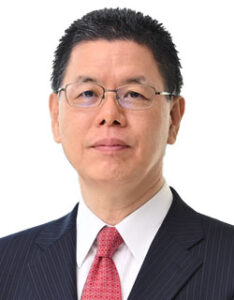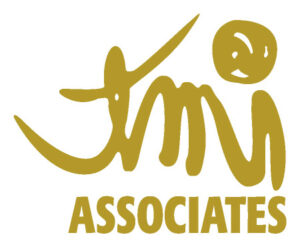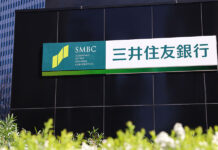The government of Japan has declared its intention to be carbon neutral by 2050, and companies are now considering and implementing various carbon neutrality strategies. One important strategy is renewable electricity purchasing.
Under Japan’s Feed-in Tariff (FIT) system, which took effect in 2012, renewable electricity is purchased at relatively high prices. Renewable electricity producers do not supply the electricity generated to consumers, but sell it exclusively to transmission system operators, which are obliged to purchase renewable energy via the FIT system. In recent years, tariffs under the FIT system have been declining, less than JPY11/kWh (10 US cents/kWh) for solar power, and the amount of renewable electricity supplied to consumers outside of the FIT system has increased.
On-site PPAs
Under an on-site power purchase agreement (PPA), renewable energy producers install power generators (mainly photovoltaics) on the roofs of buildings or the premises of consumers of the electricity produced by such power generators.

Partner at TMI Associates in Tokyo
Email: koji_fukatsu@tmi.gr.jp
In Japan, supplying electricity to meet public demand constitutes a retail service under the Electricity Business Act. To engage in retail services, a company must register as an electricity retail business under the act. However, under an on-site PPA, electricity is supplied only to the consumer owning the building or grounds on which the power generator is installed, and supplying electricity is not interpreted as a retail service to meet public demand. For this reason, renewable power producers are not required to register as an electricity retail business.
Off-site PPAs
Installing a large power generator on a consumer’s roof or premises is not necessarily appropriate when space is limited. Consequently, renewable energy producers are increasingly using off-site PPAs. They can install generators at sites other than the premises or roofs of consumers’ buildings and supply the electricity generated to consumers through the power grids of transmission system operators.
As described above, supplying electricity to meet public demand constitutes a retail service. Therefore, to supply electricity via off-site PPAs, renewable power producers shall supply the electricity wholesale to electricity retailers and transfer the non-fossil fuel energy value attributable to the renewable electricity to the same retailers. The electricity retailers then supply a mixture of electricity and non-fossil value to consumers.
However, electricity supplied by electricity retailers in Japan is subject to a renewable energy charge of JPY3.36/kWh as of December 2021. Due to this charge, renewable electricity is purchased under the FIT system.
Under the FIT system, transmission system operators purchase electricity generated from FIT-certified renewable power plants, and the funds are broadly collected from consumers by electricity retailers. The electricity retailers pay the collected funds to the expense-sharing co-ordinating body (the Green Investment Promotion Organisation), and the co-ordinating body distributes the payments to the transmission system operators as subsidies. Transmission system operators purchase renewable electricity with these subsidies.
Electricity retailers are paid with fees, in addition to the renewable energy charge. Accordingly, consumers and renewable energy producers need to conduct transactions directly without electricity retailers.
Self-consignment supply
As of November 2021, self-consignment to consumers outside a power producer’s group is permitted. Renewable power producers can supply electricity directly to such consumers outside of the services of an electricity retailer.
Under the Electricity Business Act, self-consignment supply means a person who maintains and operates a power plant for business unrelated to electricity production, and supplies electricity to their factories, laboratories or other buildings located remotely from the power plant using the power grid of transmission system operators.
As self-consignment is similar to the self-consumption of electricity generated from an on-site power plant, the generator is not required to register as an electricity retail business. Supplying such energy to persons with a “close relationship” to the power producer is also considered a self-consignment supply (self-consignment within the power producer’s group).
A close relationship refers to relationship in the production process, capital relationship (including with a subsidiary), personnel relationship (such as the dispatch of directors), or relationship where the power producer and the consumer formed a company through transactions expected to continue for a long period.
The requirements for self-consignment supply outside a power producer’s group are: (1) a partnership expected to continue for a long period, and established jointly by persons maintaining and operating power plants for business unrelated to electricity production and consumers; (2) the said power plants are renewable power plants that have not been certified under the FIT system or the Feed-in Premium (FIP) system, which will take effect in April 2022; (3) the power plants will be newly installed to meet the exclusive needs of the members of the partnership; and (4) the partnership agreement stipulates the fees for supplying electricity from the power plants and the burden of expenses for electric meters and wiring works.
Renewable energy charges are not incurred in self-consignment because electricity retailers do not supply electricity. However, the power generation plan must be matched with the actual power generated every 30 minutes. If the matching fails, the transmission system operators must receive reimbursement for the imbalanced settlement. Therefore, a power producer must adjust the power generation plan or outsource such work to a third party, such as an electric aggregator. Electric aggregators will be regulated under the Electricity Business Act as of April 2022. The aggregators must notify the Ministry of Economy, Trade and Industry stating that the electric aggregator will commence a “specified wholesale supply” business.
Virtual PPAs
Under virtual PPAs, renewable power producers generally sell power at market prices on the Japan Electric Power Exchange (the wholesale electricity exchange of Japan) and supply the non-fossil fuel value of the renewable electricity to consumers.
On the other hand, when consumers procure electricity from third-party retailers, they pay the difference between the market price and fixed price to renewable energy producers. Long-term contracts between renewable power producers and consumers have the same effect as selling electricity at fixed prices, making it easier to obtain financing from banks and financial institutions for power plant installation projects.
In Japan, consumers may receive electricity from any electricity retailer. For example, electricity for a consumer’s factory in Tokyo can be supplied by renewable power plants in Kyushu through the power grid that passes through each service area of transmission system operators. The power grid in Japan connects nine transmission system operators, except for Okinawa Electric Power. Thus, virtual PPAs do not seem to be needed in Japan.
In some cases, an upper limit on the amount of power transmitted via the interconnected lines between adjacent service areas prevents electricity transmission beyond a service area. In such cases, a virtual PPA system may also be required in Japan.
Therefore, the author suggests considering the possibility that payment of the difference between the fixed and market prices may constitute an over-the-counter commodity derivative transaction as a contract for the difference between a contract and actual price under the Commodity Derivatives Transaction Act.
Conclusion
Due to the revision of the Energy Special Measures Act in April 2022, the FIT system will be partially replaced by the FIP system. Renewable power producers, especially photovoltaics, over a certain capacity must then supply electricity to the wholesale market or electricity retailers. Therefore, the number of off-site PPAs and virtual PPAs is expected to increase. At the same time, the number of renewable power producers that supply electricity via on-site PPAs and self-consignment outside of the FIT or FIP systems is also expected to increase.

TMI Associates
23/F Roppongi Hills Mori Tower
6-10-1 Roppongi, Minato-ku
Tokyo 106 6123, Japan
Tel: +81 3 6438 5464
Email: info_general@tmi.gr.jp
www.tmi.gr.jp




























